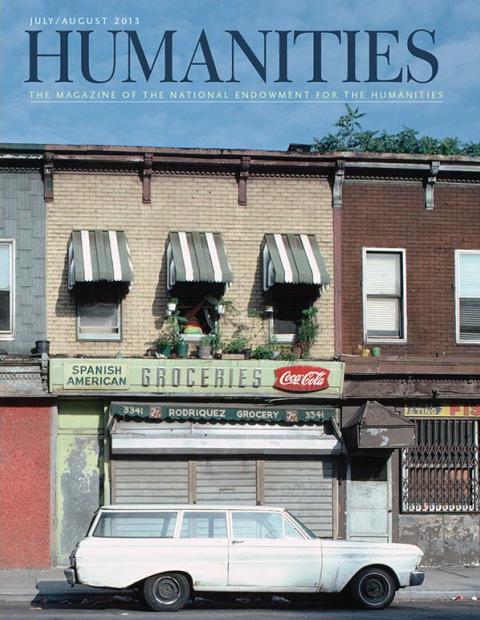As a child, Sherry DeBoer used to sneak books from her mother’s closet and pore over them at night. When book-swiping is your crime, however, you can’t exactly discuss thematic elements and plot twists with those who might frown upon your subterfuge. So, at a fairly young age, DeBoer found herself in a self-created book club for one.
Not that she was lonely. DeBoer grew up on a South Dakota farm that remains in the family after four generations. She was still doing the “chicken chores” when she was in high school. On Saturdays, she would check out sacks of books from the old Carnegie Library in Brookings, and in seventh grade she read nearly every title in the Sinai Elementary library. She was far too engaged to feel alone.
A few decades later, DeBoer has crafted her home state into a 77,123 square-mile book club. As executive director of the South Dakota Humanities Council since 2007, DeBoer oversees the organization’s signature program—the South Dakota Festival of Books, drawing thousands of readers together with authors such as Sherman Alexie, Marilynne Robinson, Dave Eggers, Pete Dexter, and Walter Dean Myers.
“Literature is a central part of who we are,” DeBoer says. “We wanted to establish a light on the literary landscape, so we connected with the Library of Congress to become a Center for the Book. Reading and writing are fundamental to our work.”
The Festival of Books alternates between vastly different South Dakota cities. The festival lands one year in the picturesque city of Sioux Falls (population: more than 156,000) and the following year bursts the seams of historic Deadwood, rife with casinos, staged gunfights, and Wild West saloons (population: 1,270).
“Reading is still solitary in some ways,” DeBoer adds. “But being with the author makes the books and the stories come to life. It changes things. That’s what makes us better people—we’ve had this shared experience.”
The council’s own book, What Makes a South Dakotan? (the fifth book in a series of South Dakota stories), was honored with the 2013 Award of Merit by the American Association for State and Local History.
“This was the major project for our fortieth anniversary, as well as the South Dakota Community Foundation’s twenty-fifth anniversary partnership, so it’s pretty exciting,” DeBoer says. “The preservation of stories, local culture, and history is something we’ve really worked on over our forty-year history.”
A walk through the humanities council’s home base reveals cozy offices dotted with stacks of books, some waiting to be shipped to reading clubs throughout the state. Less obvious at first blush is DeBoer’s drive to embrace technology in connecting a state where wind-ravaged, icebound roads have been known to grind winter travel to a halt.
“We were early pioneers in using Facebook and e-newsletters,” she explains. “We have a strong presence on Twitter and Facebook, and we’re hoping this is the year to launch a mobile app for the festival.”
All DeBoer needs to launch that app is the “right yes” from the right supporter. Which brings up one of the significant challenges of running a nonprofit humanities outfit in South Dakota: The state was ranked forty-ninth in total contributions (out of fifty-one), in How America Gives, a 2013 Chronicle of Philanthropy study.
And yet the woman, educated at South Dakota State University, who originally came to the council in 1987 to perform a data-entry job, has led her team to meet their Festival of Books fundraising goals for ten years running. They continue to build on two endowments (valued around $1.8 million) in the drive to become self-sustaining.
Another key goal is to “build the festival beyond the choir.” DeBoer tells of a lunch meeting in Deadwood where the waitress gushed over how the festival has inspired her. Other days she is confronted with South Dakota residents who don’t realize the council exists. You can almost hear her soul sigh during those encounters.
DeBoer has become known for her encyclopedic knowledge of council history and for her sharp strategic planning. She is as tenacious as the Dakota weather, yet more predictable—DeBoer is never too busy or distracted to discuss the resplendence of an idea. She is unflinching about gathering divergent voices to look deeply at the seminal issues of her state—water, immigration, tribal history, connection with each other, connection with the land.
Much hinges on the intentional practice of civil conversation, DeBoer says—on being thoughtful, on being engaged. And even though she doesn’t have to sneak her books to bed anymore, they still might have taken over a closet or two, at work and at home.
“Books have just overrun my house,” she admits. “Now I read all over the place, and I read a lot more authors who are alive. What [was] I doing at a quarter to one two nights ago? I’m up reading. I’m still reading everything."

